We understand that survival is about more than just treating physical injuries. For people who have endured the hardships of humanitarian crises, the psychological wounds often remain long after the visible scars have healed.
Since 2001, MSF has been providing free, high-quality counseling services to people in Kashmir, India. In addition to providing care, MSF works to combat the stigma surrounding mental illness by raising awareness about the importance of mental health and the need for accessible services in the region. By bringing care closer to communities, the project continues to expand its reach, providing mental health support to more people than ever before.
Breaking Silence, Building Trust: A Day with MSF’s Community Mental Health Team in Kashmir
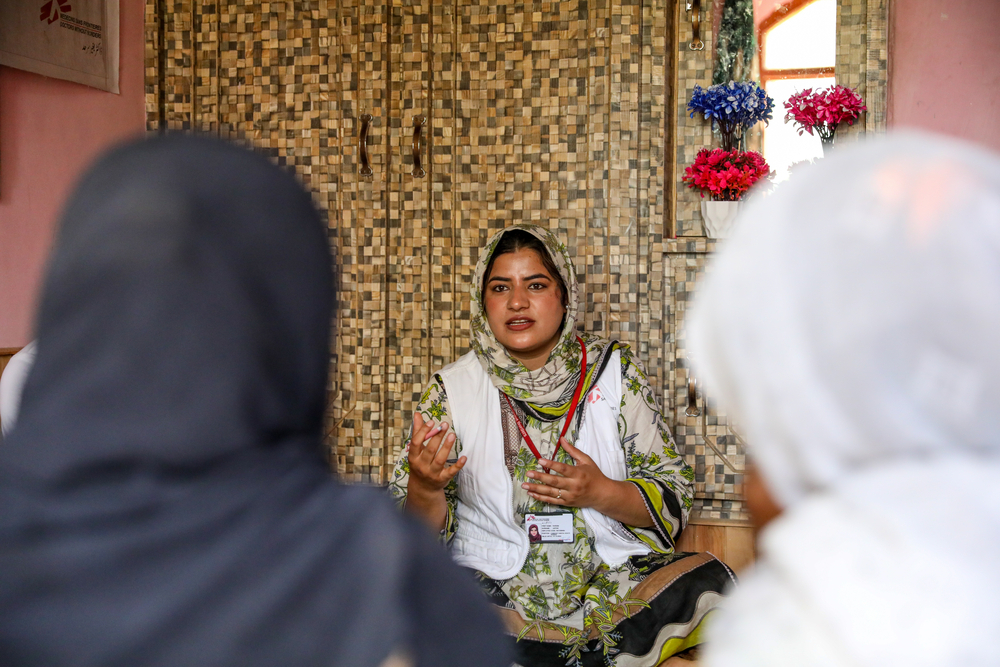
MSF’s community mental health team, led by professionals like Taheem Jafar, works tirelessly to provide free and confidential counseling services to those affected by trauma, depression, and anxiety. Through door-to-door visits, group sessions, and awareness campaigns, they aim to reduce stigma and educate communities about the importance of mental health care.
By collaborating with local ASHA workers, religious leaders, and educators, MSF has fostered trust and strengthened connections within the community, ensuring better access to care. Their efforts have led to increased self-referrals and greater advocacy for mental health, showcasing the power of resilience and recovery. The article highlights the challenges faced by the team, their commitment to self-care, and the inspiring stories of individuals who have found hope and healing through MSF’s initiatives.
How MSF Drivers Are Helping Advance Mental Health Care in Kashmir
MSF drivers Mohammad Yakoob and Mohammad Ashraf, have been pivotal in bringing mental health care to communities across Kashmir. For over two decades, these drivers have done far more than transport staff and supplies—they’ve become advocates for mental health, helping to break stigma and ensure care reaches even the most remote regions. Their tireless work has been crucial in expanding MSF’s free mental health counseling services, offered since 2001 in areas like Pulwama, Srinagar, Tral, and Sopore.
Yakoob and Ashraf’s roles extend far beyond the road. They meticulously plan routes to navigate challenging terrains, ensuring MSF teams can reach those in need during emergencies like floods and earthquakes. They’ve witnessed firsthand the growing awareness and acceptance of mental health care in Kashmir, a region long impacted by conflict and trauma. Through their work, they have become passionate advocates for mental health, educating communities and their families about the importance of seeking support.
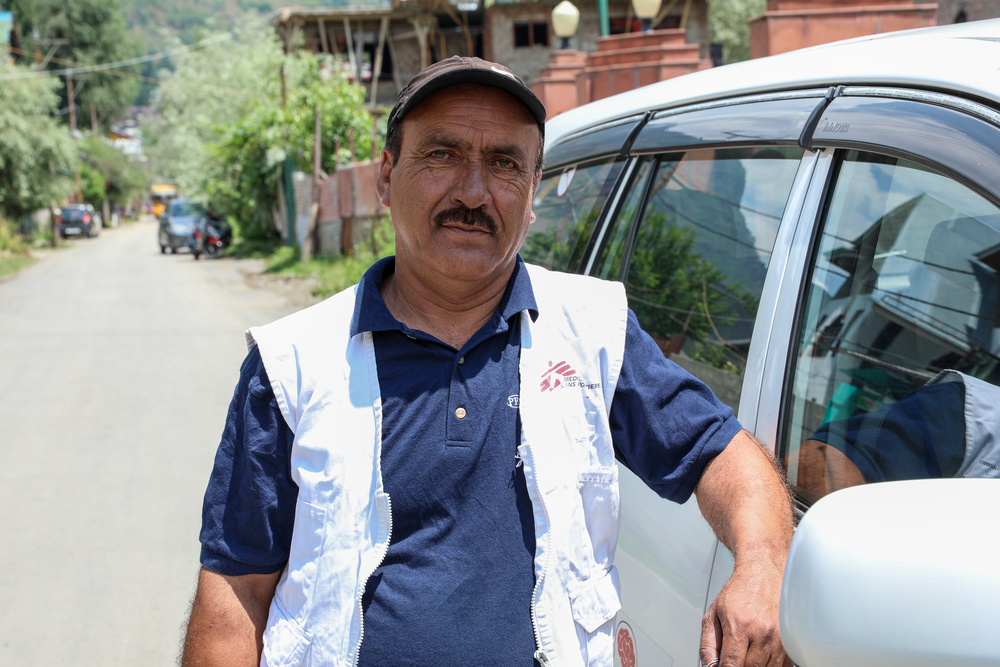
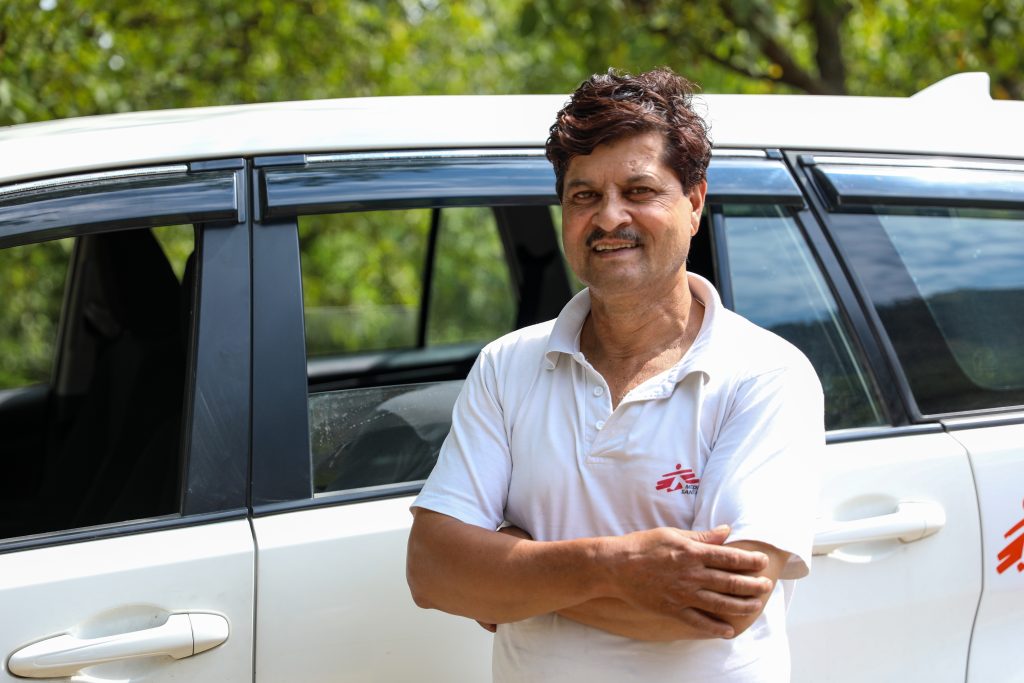
For Yakoob and Ashraf, working with MSF has been transformative. It has taught them valuable lessons in stress management and mental health awareness, which they’ve applied to their personal lives. Their dedication and resilience exemplify MSF’s mission to normalize mental health conversations and provide accessible care to those who need it most.
Their story is a reminder that every role within MSF contributes to driving meaningful change for those who need it most.
Brushstrokes of hope
Isha Malik, a clinical psychologist with Doctors Without Borders India/MSF, was inspired to address the psychological toll that the environment around has taken on the region. Working in Srinagar and Pulwama, she confronts the stigma surrounding mental health and strives to make care accessible to vulnerable populations, particularly adolescents. Isha’s approach combines therapy, psychoeducation, and community outreach to foster understanding and acceptance of mental health issues.
Isha’s work emphasizes the importance of family involvement in recovery, as she believes families play a crucial role in supporting individuals with mental health challenges. Through psychoeducation sessions, she helps families recognize symptoms, understand mental health conditions, and learn how to provide meaningful support. Her culturally sensitive methods create a safe space for patients to share their struggles and begin their healing journey.
A powerful example of her impact is the recovery of a 17-year-old girl who sought help after experiencing severe trauma. Isha’s therapy sessions helped the girl regain her confidence and emotional stability, enabling her to return to school, reconnect with her passions like martial arts, and envision a brighter future. This story underscores the resilience of the human spirit and the transformative power of mental health care.
Isha likens her work to painting, where each therapy session is a brushstroke contributing to a larger picture of healing and hope. She envisions a future where mental health care is normalized, stigma is reduced, and communities are empowered to support one another.
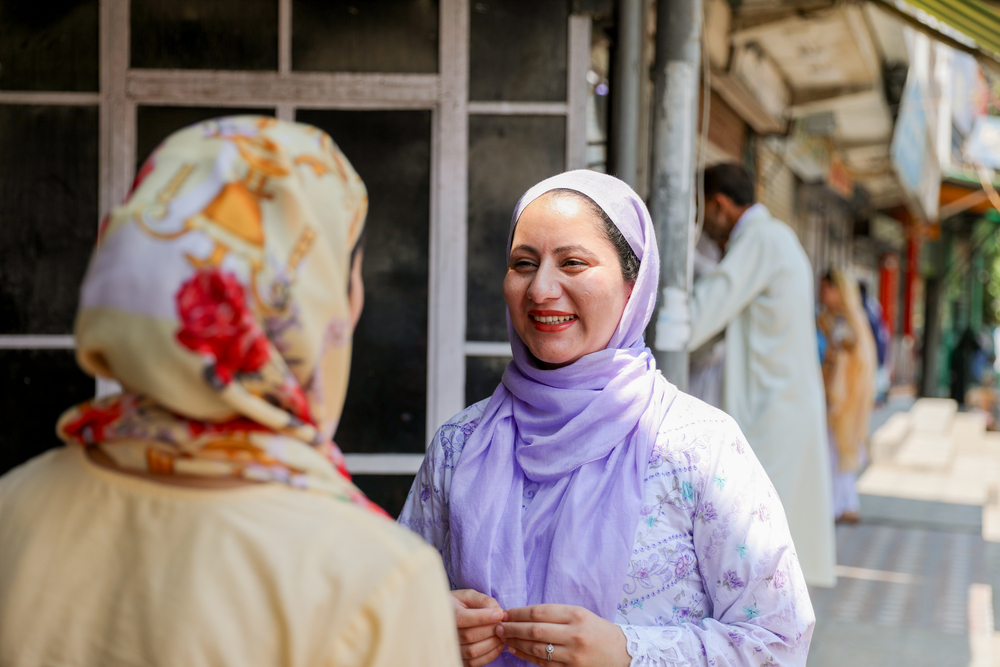
Healing Conversations
Naseer Mir Ahmad, a counsellor educator with Doctors Without Borders India/MSF, navigates the complexities of providing mental health support in Kashmir. His journey into psychology was inspired by a poignant encounter with a distressed woman on a bus, which motivated him to pursue studies in the field and eventually join MSF in 2021.
Despite the stigma surrounding mental health in Kashmir, Naseer’s work is helping to shift perspectives. Many individuals initially hide their struggles due to societal pressures, but his efforts have sparked gradual change. In Sopore, for example, his work has transformed skepticism into acceptance, with community members embracing counseling as a tool for managing stress and emotional challenges. Through his culturally sensitive approach and dedication, Naseer is fostering greater awareness and understanding of mental health within the region.
Naseer’s commitment to his patients is matched by his focus on self-care. He prioritizes physical activity, social connections, and family time to maintain his own emotional balance while navigating the demands of his work. His efforts not only help individuals heal but also strengthen communities, paving the way for a future where mental health care is normalized and stigma is diminished. Naseer’s story serves as a powerful reminder of the importance of empathy, resilience, and the transformative impact of mental health support.
“She wasn’t always veiled like this,” explains Naseer, Counsellor Educator with Doctors Without Borders India/ Médecins Sans Frontières (MSF) in Kashmir. “Her mother forced her to wear it for counselling sessions. ‘If people see you coming here,’ her mother had warned, ‘no one… pic.twitter.com/41ujxdzGt0
— MSF South Asia (@MSF_SouthAsia) October 27, 2025
Breaking Barriers in Kashmir Mental Health Support
Nadia Ashfaq, a clinical psychologist and Mental Health Supervisor with Doctors Without Borders India/MSF, leads a dedicated team providing essential mental health services in Kashmir. The mental health challenges in Kashmir are deeply rooted in pervasive stigma. Many individuals delay seeking help or recognizing symptoms, often due to cultural resistance. Nadia’s team prioritizes educating families about mental health while safeguarding patient confidentiality, as family involvement is crucial for recovery.
The team faces significant hurdles, including geographical and cultural barriers, transportation difficulties, and a growing prevalence of anxiety disorders among the youth. Despite these challenges, Nadia draws inspiration from the resilience of the human spirit. She copes with the emotional demands of her work through creative outlets like art and self-care practices. Nadia integrates mindfulness and relaxation techniques into her team’s routine, helping them manage stress and build emotional resilience. She also extends these practices to other staff members, fostering a collective approach to mental health care.
Her artistic passion for preserving flowers mirrors her patient care philosophy—valuing and nurturing what others might overlook.
Looking to the future, Nadia envisions broader mental health services in Kashmir, aiming to normalize seeking help and reduce stigma. She advocates for specialized care tailored to children and adolescents, who face unique challenges, and emphasizes the importance of training local professionals to ensure sustainable, culturally relevant care.
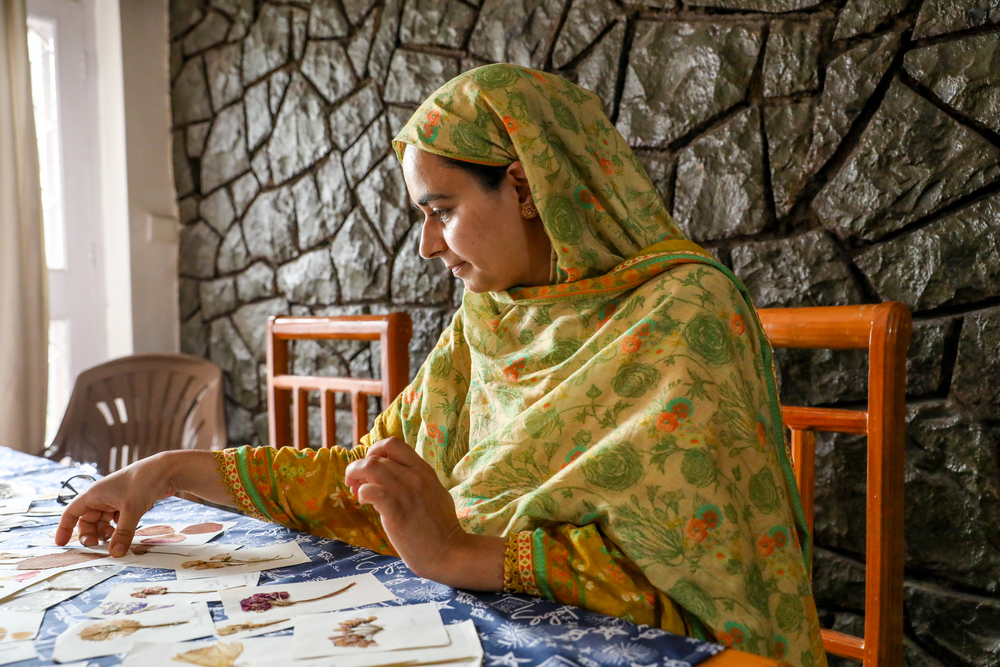
Mental Health Awareness for WMHD 2025
Doctors Without Borders/Médecins Sans Frontières (MSF) has been conducting a series of mental health awareness sessions in Kashmir, aiming to promote understanding, break down stigma, and provide practical tools for mental well-being. At Government Women’s College, Nawa Kadal, Clinical Psychologist Farhana Yaseen led an engaging discussion, focusing on recognizing mental health challenges, addressing stigma, and fostering open conversations within the community. The session emphasized the profound impact of mental health on overall well-being while debunking common misconceptions.
The MSF team also visited Government Upper Primary School, Zeisbal Lam, to discuss the importance of mental health awareness among students and educators, ensuring they are equipped to recognize early signs of mental health issues and seek timely support. Additionally, at the ICDS Centre in Chopan Mohalla, MSF facilitators conducted a specialized session for women, focusing on stress management and coping mechanisms for those facing economic and social challenges.
In collaboration with the Department of Psychology, MSF organized an impactful session at the Government Degree College auditorium to address mental health myths, break stigma, and foster a deeper understanding of mental well-being. These initiatives reflect MSF’s commitment to empowering communities with knowledge, encouraging dialogue, and creating a supportive environment for mental health care.
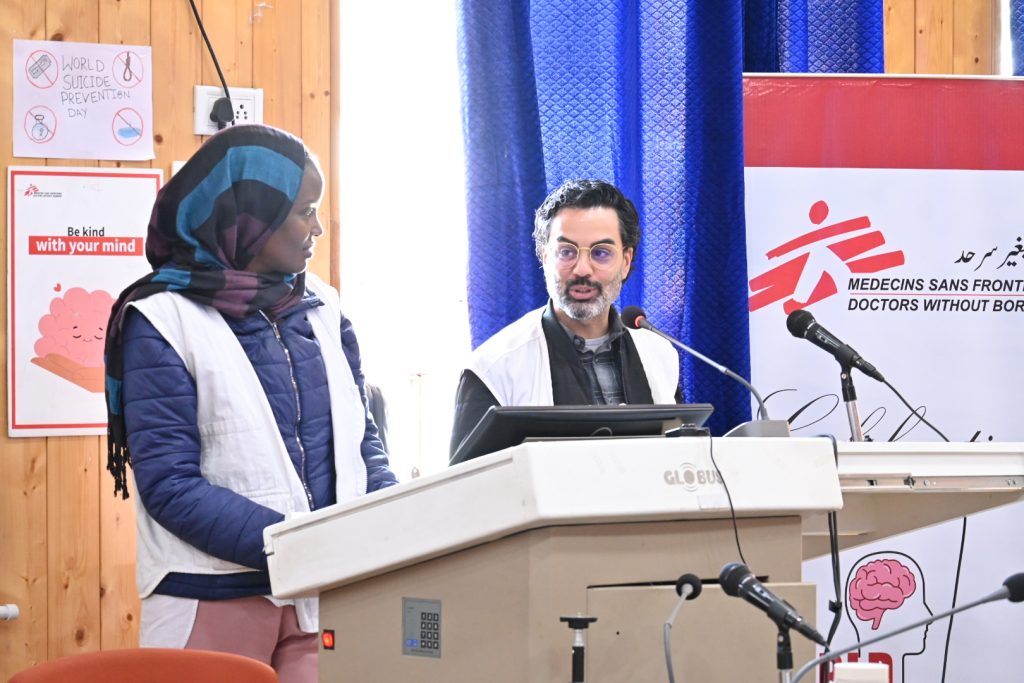
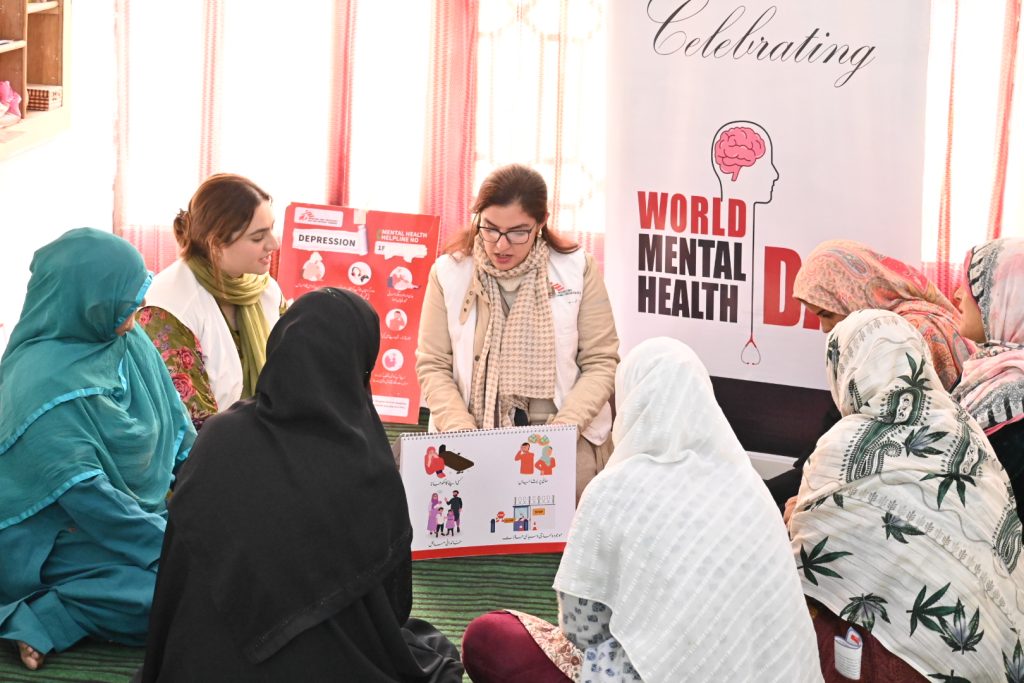
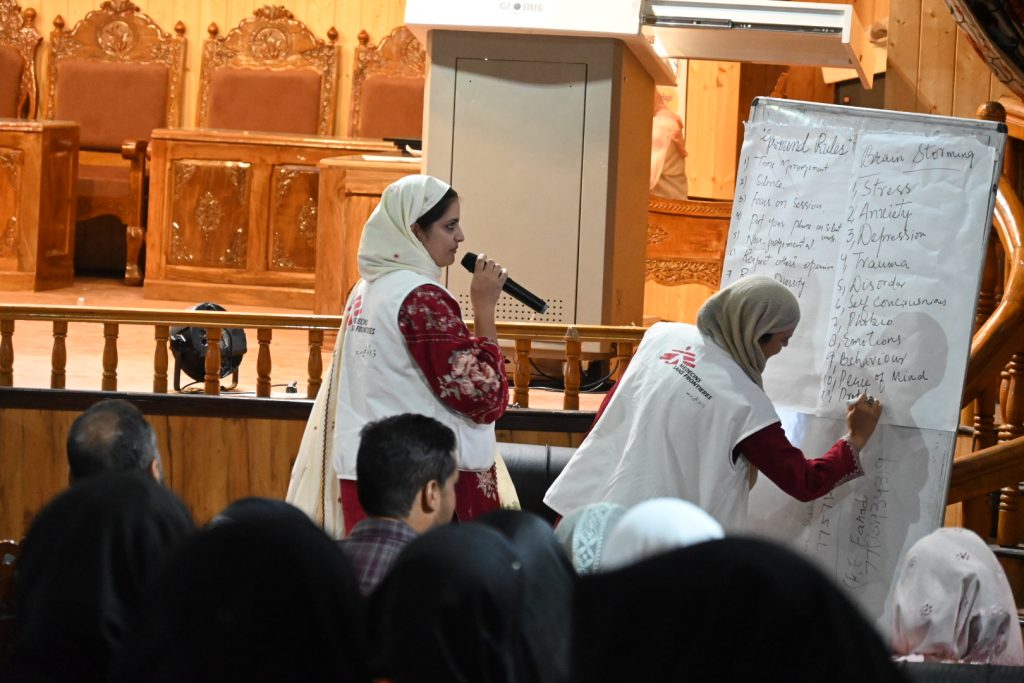
By fostering open dialogue, dismantling stigma, and cultivating a supportive environment, MSF is actively contributing to the creation of a culture where mental health care is both prioritized and accessible to all. Our work in Kashmir underscores the crucial role of mental health awareness in building stronger, healthier, and more resilient communities.












